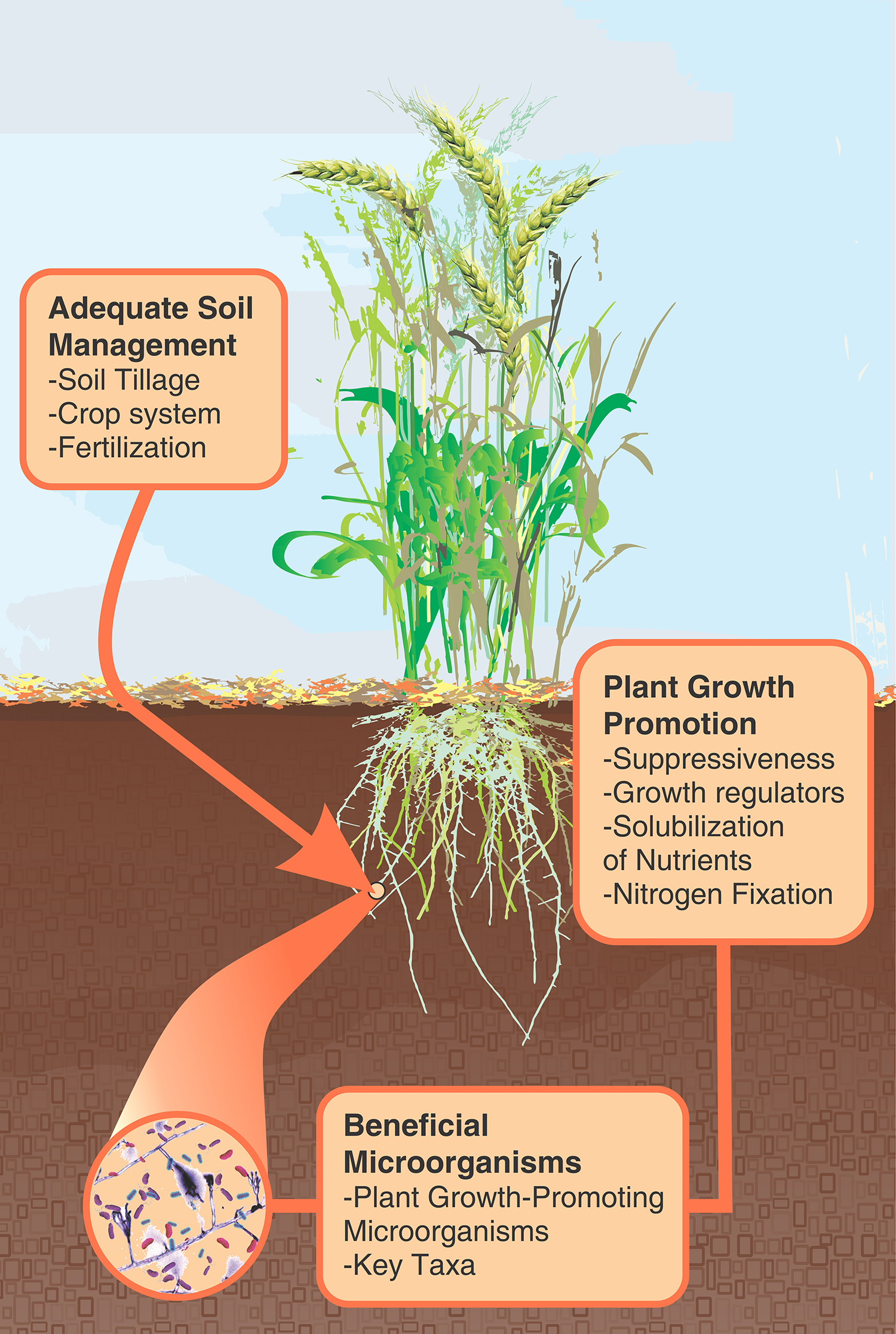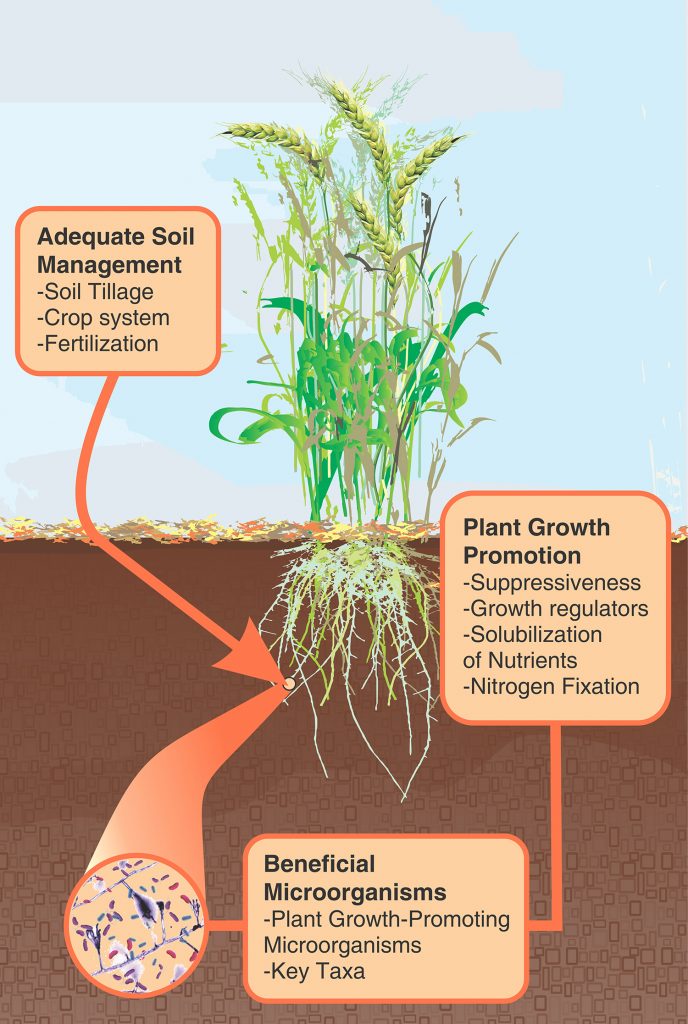Rev. Bras. Ciênc. Solo.2022;46:e0210098.
Soil-plant-microbiota interactions to enhance plant growth
28/Jan/2022
DOI: 10.36783/18069657rbcs20210098
Graphical Abstract

Highlights
Soil microbiota affects plant growth, and management can shape its composition.
Proper management practices can build up a “plant growth-promoting soil” (PGPS).
Crop rotation and conservation tillage can promote soil suppressiveness.
The identifycation and increase of the abundance of keystone taxa benefit N fixation.
Machine learning will help to select the most suitable soil management practices.
ABSTRACT
The nature of the soil is shaped by the presence of roots and the soil microbiota. Bacteria, archaea and fungi profoundly alter plant growth and, in turn, depend on root exudation of carbon-rich and energy-yielding compounds. The microbial communities act as facilitators of plant processes by secreting plant growth regulators, solubilizing minerals, providing N for plant growth, altering plant immune responses and competing with plant pathogens. Characterizing and engineering the processes driven by the multiple microbial taxa that make up a “plant growth-promoting soil” represents an ecologically friendly solution that may lead to unprecedented increases in agronomic efficiency. This review outlines the characteristics of soil-plant-microbiota interactions that would lead to enhanced plant growth and the importance of characterizing the soil microbial communities with metabarcoding and shotgun metagenomics allied to machine learning analytics. Although much is still needed to be understood about soil microbial ecology, it is possible to choose the best soil management practices to take advantage of beneficial microbial activity with our current knowledge.
2,476


Tem acesso ao texto completo? Obrigado.
Boa tarde! Você pode acessar o arquivo pelo link abaixo:
https://www.rbcsjournal.org/wp-content/uploads/articles_xml/1806-9657-rbcs-46-e0210098/1806-9657-rbcs-46-e0210098.x61998.pdf